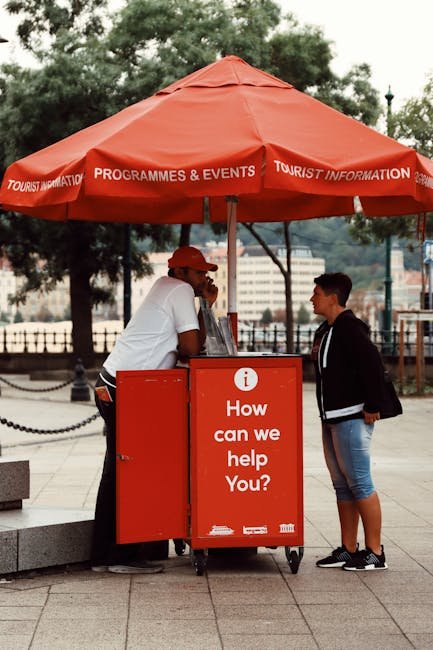Sarah thought she had it all figured out. Armed with a job offer from a multinational company and months of online research, she arrived in Budapest ready to start her new European adventure. Three weeks later, she was sitting in a government office for the fourth time, clutching a stack of incorrectly translated documents, while her “perfect” apartment turned out to be an illegal sublet that left her scrambling for new housing. Sound familiar?
If you’re planning to move to Budapest or recently arrived, you’re probably excited about the stunning architecture, affordable living costs, and vibrant expat community. But here’s what no one tells you: even the most prepared expats make predictable mistakes that can cost hundreds of euros, weeks of stress, and sometimes their sanity.
After having studied many expats’ challenges, we’ve identified the 10 most common mistakes that trip up newcomers—and more importantly, how to avoid them. These aren’t generic “culture shock” tips you’ll find elsewhere. These are specific, actionable solutions based on current 2024-2025 regulations, costs, and real experiences from our expat community.
At BudaBestLife, we’ve helped a number of expats navigate the city’s quirks. This guide is your shortcut to avoiding costly errors and settling in smoothly. Let’s dive in.
⚠️ Mistake #1: Underestimating Hungarian Bureaucracy and Document Requirements
The Story: Mark, a software developer from London, assumed his English university diploma and standard translations would suffice for his residence permit application. After three rejected applications and €300 in wasted fees, he discovered Hungarian authorities require notarized translations by certified translators—and his documents needed apostille stamps he’d never heard of.
Why This Happens: Hungarian bureaucracy operates on a different level of complexity than most Western countries. The January 2024 visa law changes have made document requirements even stricter, especially for non-EU citizens. Most government offices operate primarily in Hungarian, and staff have little patience for incomplete paperwork.
The Real Cost: Beyond the obvious fees (residence permit applications cost €100-200), you’ll lose weeks of processing time with each rejection. Moreover, many expats end up paying €500-800 for emergency document services and translators when they could have done it right the first time for €200-300.
How to Avoid It:
- Get apostille stamps on all foreign documents before leaving your home country—this can take 2-4 weeks and is nearly impossible to do remotely
- Use only certified Hungarian translators from the official government list (find it on magyarorszag.hu )
- Prepare physical copies of everything—Hungarian offices rarely accept digital documents
- Hire a relocation specialist for your first major bureaucratic process (€150-300 investment that saves much more)
- Join BudaBestLife or expat Facebook groups for real-time help and before you arrive
💡 Pro Insider Tip
Always bring extra passport photos, proof of address, and bank statements when visiting immigration offices. Appointments are often rescheduled due to missing paperwork—even if it’s not listed online.
🏠 Mistake #2: Housing Horror Stories and Deposit Traps
The Story: Laila found what seemed like the perfect apartment in District V on Facebook Marketplace—€800/month for a gorgeous one-bedroom near the Danube. The “landlord” was traveling but needed a €1,600 deposit immediately to “hold” the property. You can guess how this ended.
Why This Happens: Budapest’s rental market has exploded and became very competitive, with central district prices reaching €645-985 for one-bedroom apartments, especially in central districts (V, VI, VII, XIII). High demand creates urgency, and scammers exploit expats’ unfamiliarity with local rental procedures by demanding deposits upfront or renting out properties they don’t own. Furthermore, Facebook groups and classified sites are flooded with fake listings targeting foreigners.
The Real Cost: Beyond losing deposits (typically €1,200-2,000 for 2 months’ rent), victims often arrive in Budapest homeless and scramble for expensive short-term accommodation while starting their search over. Emergency hotel stays can cost €50-150 per night.
How to Avoid It:
- Never pay anything without seeing the property in person—legitimate landlords understand this requirement
- Verify ownership through official property records (available at local government offices)
- Use licensed rental agencies like Duna House or Otthon Centrum for your first rental
- Document everything—take photos, get receipts, and insist on written contracts in both Hungarian and English
💡 Pro Insider Tip
Hungarian law caps security deposits at 2 months’ rent maximum. Anything higher is legally challengeable. Also, landlords must transfer utilities into your name—if they refuse, it’s a red flag for potential debt issues.
🚋 Mistake #3: Transportation Tickets and Validation Confusion
The Story: Ben (the Author) figured public transport would be simple—buy a ticket, hop on the tram. What he didn’t realize was that his paper ticket needed validation every single trip, and his “24-hour pass” didn’t work the way he expected. A €65 fine from BKK inspectors quickly educated him about Budapest’s transport system.
Why This Happens: Budapest’s BKK system uses various ticket types with different validation rules. Tourists and new expats often misunderstand how passes work, when validation is required, and which routes operate at night. The system assumes local knowledge that newcomers simply don’t have.
The Real Cost: BKK fines range from €25-65 per violation, and inspectors are particularly active on tourist-heavy routes. Multiple violations can result in hundreds of euros in penalties that must be paid immediately or risk escalation.
How to Avoid It:
- Download the BKK app and use mobile tickets to eliminate validation confusion
- Buy a monthly pass (€25/HUF 9,800) if staying longer than two weeks—it’s almost always cheaper
- Understand night service changes—many routes have different stops and schedules after 11 PM
- Keep your ticket/pass visible during travel and for 10 minutes after exiting
- Check parking zones carefully—especially in District V and VI
💡 Pro Insider Tip
The Budapest Card offers unlimited transport plus museum discounts, but it’s only worth it if you’re actively sightseeing. For daily commuters, the monthly BKK pass combined with MOL Bubi bike sharing (€4-8/month) covers most transportation needs efficiently, and help avoid traffic jams and fines.

🗣️ Mistake #4: Over-Relying on English and Ignoring Language Barriers
The Story: Gosia assumed her excellent English would be sufficient since Budapest is a major European capital. But when her heating broke down in March and she couldn’t communicate with the repair service, she spent three freezing days and €135 on emergency heaters before finding a Hungarian-speaking colleague to help translate.
Why This Happens: While young Budapesteners often speak English, crucial services (healthcare, utilities, government, emergency services) operate primarily in Hungarian. The Magyar language is notoriously difficult, and many expats underestimate how much basic Hungarian they’ll need for daily life.
The Real Cost: Language barriers create expensive workarounds—hiring translators for medical appointments (€50-100), missing important official notifications that lead to penalties, or paying premium prices for English-speaking services that locals get cheaper.
How to Avoid It:
- Learn basic Hungarian phrases before arrival—focus on numbers, addresses, and emergency vocabulary
- Use Google Translate’s camera function to instantly translate Hungarian documents and signs
- Find a “language buddy” through expat groups—many locals want to practice English in exchange for Hungarian help
- Enroll in basic Hungarian classes within your first month (ELTE university offers excellent programs)
💡 Pro Insider Tip
Download the “Hungarian Language Helper” app and save key phrases in your phone’s favorites. Essential phrases: “Beszél angolul?” (Do you speak English?), “Segítség kell” (I need help), and your address written in Hungarian characters for taxi drivers.
💸 Mistake #5: Currency Exchange Scams and Banking Missteps
Lena, a German freelancer, changed €500 at the airport and got hit with a 12% exchange fee. She also signed up for a mobile plan with hidden charges and paid double for groceries by shopping at tourist-heavy stores. Additionally, her troubles continued when she tried opening a bank account without proper documentation, requiring multiple visits and additional fees.
Why This Happens: Hungary uses the Hungarian Forint (HUF), and exchange rates vary dramatically between legitimate and tourist-trap locations. Banking requires specific documentation that many expats don’t prepare in advance, leading to delays and additional costs.
The Real Cost: Bad exchange rates can cost 5-15% of your money per transaction. Banking delays mean paying cash for everything (including rent deposits) and missing better account packages offered to residents with proper documentation.
How to Avoid It:
- Use ATMs for cash withdrawal rather than exchange offices—your bank’s foreign transaction fee is usually better than exchange margins
- Avoid airport and tourist area exchanges—downtown currency exchanges offer rates 5-10% better
- Open a Hungarian bank account immediately upon getting your residence permit—you’ll need it for rent payments and utility bills
- Compare banking packages—OTP, K&H, and Erste Bank offer expat-friendly accounts with English support
- Shop at local markets (e.g., Lehel Market, Fény utca)
- Compare mobile/internet bundles before signing
💡 Pro Insider Tip
Revolut and Wise cards work excellently in Budapest for daily expenses, but Hungarian landlords and utilities prefer local bank transfers. Keep both options available—international cards for flexibility, Hungarian account for local obligations. Basic bank accounts cost HUF 700–2,000/month (€1.80–5.10). Simply, ask locals or expat groups for bank recommendations—some offer English-speaking service and lower fees.
🤝 Mistake #6: Cultural Workplace Blunders and Business Etiquette
The Story: Jeremy’s first team meeting at his new Budapest office didn’t go as planned. He arrived five minutes late (fashionably late, he thought), wore business casual clothing, and immediately jumped into friendly first-name basis with his manager. His colleagues’ cold reception made it clear he’d misread Hungarian business culture entirely.
Why This Happens: Hungarian workplace culture values formality, punctuality, and respect for hierarchy more than many Western countries. Direct communication is expected, but within formal structures. Many expats assume European business culture is uniform, missing important local nuances.
The Real Cost: Cultural missteps damage professional relationships, limit career advancement opportunities, and can even jeopardize job security during probation periods. Moreover, a recovery from a bad first impression takes months of careful relationship rebuilding.
How to Avoid It:
- Always arrive 5-10 minutes early for meetings—punctuality is non-negotiable in Hungarian business culture
- Dress formally until explicitly told otherwise—conservative business attire shows respect and professionalism
- Use titles and last names until invited to use first names, especially with senior colleagues
- Speak directly but diplomatically—Hungarians appreciate honesty but within respectful frameworks
- Avoid politics, religion, and personal questions
💡 Pro Insider Tip
Accept social invitations from colleagues, especially lunch invitations and after-work events. Hungarian business relationships develop through personal connections, and declining social opportunities can isolate you professionally. Furthermore, In Hungary, it’s polite to keep your hands visible at the table during meals and wait for the host to start eating. These small gestures build trust and show cultural awareness.

🏙️ Mistake #7: Choosing the Wrong Neighborhood Without Local Knowledge
The Story: Fatima found a beautiful, affordable apartment in District VIII for just €450/month—half the price of similar places she’d seen in District V. What she didn’t know was that her specific street had safety issues at night, and poor public transport. Furthermore, she felt isolated and moved out within two months—losing her deposit.
Why This Happens: District generalizations don’t account for micro-neighborhoods within each area. Online listings rarely mention hyperlocal issues like construction projects, night safety variations, or transport accessibility changes. New expats often prioritize price over practical daily considerations. Generally, Some areas are great for families, others for nightlife, and some are best avoided after dark.
The Real Cost: Beyond potential safety issues, poor location choices add €50-100 monthly in transportation costs, limit social opportunities, and reduce quality of life. Relocating within the first year means additional deposits and moving expenses.
How to Avoid It:
- Visit neighborhoods at different times—morning commute, evening return, and weekend atmosphere all vary significantly
- Walk the actual route to your workplace and nearest metro/tram stations during rush hour
- Check local Facebook groups for district-specific information and recent changes
- Consider total cost of location—cheaper rent plus higher transport costs might exceed expensive central locations
- Research districts:
. District V, VI, XIII: central, safe, expat-friendly
. District II, XI: quiet, upscale, family-oriented
. District IX, VIII: trendy but mixed safety
💡 Pro Insider Tip
Districts VI (Terézváros), XIII (Újlipótváros), and XI (Buda side) offer the best balance of affordability, safety, and convenience for most expats. On the other hand, District V is perfect but expensive, while Districts VIII and IX are rapidly gentrifying with excellent value if you choose carefully. Additionally, use Google Street View and Facebook expat groups to preview areas. Look for signs of renovation, graffiti, and foot traffic to gauge safety and livability.
🏥 Mistake #8: Healthcare Headaches and Insurance Gaps
The Story: When Olga developed severe food poisoning on a weekend, she discovered that her travel insurance didn’t cover Hungarian healthcare properly, the emergency room required her TAJ card (which she hadn’t received yet), and the private clinic visit cost €200 for what would have been free with proper registration.
Why This Happens: Hungary’s healthcare system requires proper registration through the TAJ card system, which many expats delay or complete incorrectly. Private healthcare options exist but aren’t always necessary if you understand the public system. Moreover, emergency procedures differ significantly from other countries, and language barriers and appointment delays add to the confusion.
The Real Cost: Uninsured healthcare visits can cost €65-300+ per incident. Emergency room visits without proper documentation may require upfront payment of €300-800, later reimbursed if paperwork is correct.
How to Avoid It:
- Register for TAJ card immediately upon receiving residence permit—this provides access to Hungary’s public healthcare system
- Understand your coverage—European Health Insurance Card (EHIC) provides temporary coverage for EU citizens
- Locate English-speaking doctors before you need them—many private clinics offer services specifically for expats
- Keep emergency numbers saved—112 for emergencies, and know how to communicate your address in Hungarian
💡 Pro Insider Tip
FirstMed and Medicover offer expat-friendly private healthcare with English-speaking staff. While not cheap (€60-120 per visit), they’re invaluable for complex issues requiring detailed communication.
💼 Mistake #9: Work Permit and Tax Obligation Confusion
The Story: Alex started his Hungarian job on a tourist visa, planning to “sort out the paperwork later.” Three months in, he discovered his delayed work permit application could result in fines, his employer faced penalties, and he owed Hungarian taxes on his worldwide income—something no one had explained clearly.
Why This Happens: Hungarian employment law requires proper documentation before starting work, not after. Tax residency rules are complex, and many expats don’t understand their obligations for reporting foreign income, bank accounts, or investments. On the other hand, Hungary’s work permit system is employer-driven. Non-EU citizens must have a job offer before applying, and the employer must handle the paperwork. Freelancers face additional bureaucracy and tax registration hurdles.
The Real Cost: Improper work authorization can result in €500-2000 fines and potential deportation. Tax penalties for unreported income can reach 50% of owed amounts, plus interest and administrative fees.
How to Avoid It:
- Secure work permit before starting employment—never begin work on tourist status, even temporarily
- Understand tax residency rules—183+ days in Hungary triggers worldwide tax obligations
- Register with Hungarian tax authority (NAV) within 15 days of arrival for work
- Consult an English-speaking accountant for your first tax year to establish proper procedures
- Register as sole proprietor for legal freelance work
💡 Pro Insider Tip
Hungary’s 15% flat tax rate is favorable, but proper compliance is essential. Many expats use Hungarian accounting firms specializing in international clients—expect to pay €300-500 annually for professional tax preparation, but it prevents costly mistakes. Moreover, Coworking hubs like Kaptár, Impact Hub, and Loffice host regular expat meetups and job fairs. Great places to network and find English-speaking professionals.
🧍 Mistake #10: Social Isolation and Expat Bubble Syndrome
The Story: Carlos the Spanish IT guy worked hard, learned some Hungarian, and handled all the practical aspects of expat life perfectly. But six months in, he realized he’d made no meaningful friendships, felt disconnected from both local and expat communities, and was considering moving back home despite loving Budapest itself.
Why This Happens: Budapest has a vibrant expat scene, but it’s easy to fall into the “expat bubble” or isolate yourself. Moreover, the city can feel impersonal, especially during winter months. Hungarian social circles are often established and take time to penetrate. Many expats stick only with work colleagues or never move beyond surface-level expat meetups.
The Real Cost: Social isolation affects mental health, job satisfaction, and overall expat experience. Many people leave Budapest not because of practical problems, but because they never built meaningful connections that make a place feel like home.
How to Avoid It:
- Join activity-based groups rather than generic expat meetups—sports clubs, hobby groups, and volunteer organizations create natural friendships
- Learn Hungarian beyond survival level—even basic conversational ability opens doors to local friendships
- Say yes to invitations for the first six months, even when you don’t feel like socializing
- Explore beyond central tourist areas—visit local markets, neighborhood festivals, and community events
- Volunteer or join local clubs (sports, arts, hiking)
💡 Pro Insider Tip
The “Budapest Hash House Harriers” running club, language exchange events at Szimpla Kert, and volunteer opportunities through JCI Budapest offer excellent ways to meet both locals and long-term expats who can provide ongoing social connections.
Your Budapest Success Story Starts Now
Moving to Budapest is an adventure—but it doesn’t have to be a minefield. Simirarly, It doesn’t have to mean learning these lessons through expensive trial and error. The expats who thrive here are those who prepare properly, connect with existing communities, and understand that successful integration takes patience and effort while being armed with the right knowledge and support.
Every mistake on this list is completely avoidable with the right information and preparation. More importantly, avoiding these pitfalls frees you to enjoy what makes Budapest truly special—the stunning architecture, rich cultural scene, excellent food, and surprisingly affordable quality of life that drew you here in the first place.
The key is approaching your Budapest adventure with both enthusiasm and practical preparation. Take the time to understand local systems, invest in proper documentation and language learning, and most importantly, connect with the communities that will support your transition.
At BudaBestLife, we believe every expat deserves a smooth, enriching transition. That’s why we’ve compiled this guide with realistic stories, 2024–2025 data, and local insider tips you hardly find anywhere else.
Ready now to make your Budapest experience everything you hoped it would be? Join the BudaBestLife community for ongoing support, insider tips, and connections with expats who’ve successfully navigated these challenges. Because the best way to avoid mistakes is learning from those who’ve already made them—and thrived anyway.
What’s your biggest concern about moving to Budapest? Share your questions in the comments, and we’ll provide specific guidance based on your situation.




That was really helpful!! Wish I knew some of those advises before relocating. Thank you 🙂